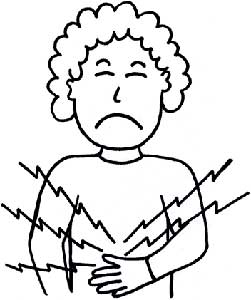A Sociopath is a person with a personality disorder who lacks empathy and emotion towards others. Their attitudes and behaviours are severely antisocial. A Sociopathic personality disorder can both occur in men and women. The easiest way to explain a sociopath is that they have no conscious and have no guilt of their actions of there antisocial behaviour. Sociopath's are usually highly intelligent and are mastermind's at deception. They are often geniuses at scamming people and being untruthful.
Signs Of A Sociopath
1. Sociopath's are incapable of feeling remorse or shame for their actions and behaviours. They betray , threaten and harm people without a second thought. Some may find it humorous and get a twisted buzz out of hurting someone.
2. Sociopath's hate to lose. The individual has to be the dominate one in every situation , they like to be in control and may go to extremes to win at all costs. ( This may include , arguments , fights, activities , being better than someone else)
3. They will never apologize and often make someone else feel as though it is there fault and they owe the Sociopath an apology.
4. Soicopath's tend to be delusional and believe what they want to believe. They often change the story they have already told and are convinced every time they change the story it is true.
5. Soicopath's can be very charming and because of their charm they can be extremely manipulative.
6. They are convinced that they can do no wrong.
7. Soicopath's do not tend to follow the law or rules , which sometimes can mean they are dangerous and violent to others. However this does not mean all Soicopath's are violent or threatening.
8. They always play the victim role.
9. Sociopath's often lie about their past , present and intentions for the future.
10. They tend to have a huge ego/ narcissist and are obsessed with themselves.
11. Soiciopath's can often be paranoid.
12. They have impulsive behaviour and are more spontaneous than others.
13. They are incapable of love , they may be with somebody romantically but will not love them like the person they are with does.
14. Because of them being narcissists they are very sensitive to criticism from others.
15. They find themselves superior to others.
Possible Causes Of Becoming A Sociopath
Although there is no specific cause of a person becoming a Sociopath , there some factors that can contribute to a possible cause of becoming a Sociopath.
. Child abuse or neglect
. Sexual , physical , mental or emotional abuse
. Genes - If there is a family history of a family member being a Sociopath , it is possible an individual may be vulnerable to becoming a Sociopath.
. Being in a hostile environment for a long period of time
. Being bullied
. Lack of acceptance
. Abnormal brain function
Instagram - xovintagewayoflifexo
Twitter - V_wayoflifexo
Facebook - Ava Clarice Hornby
Love Ava
xoxox















